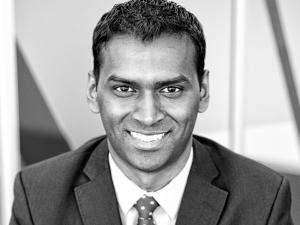
World Economic Forum (WEF) Africa 2017 in Durban is behind us, and with it goes another reminder that the fourth industrial revolution is at hand - and we need to be prepared.
While the official theme was economic inclusion, the unofficial theme may well have been digital inclusion, so closely was it woven through the topics of discussion. Whether it was the critical importance of increasing digital fluency and ICT literacy to bring jobs to Africa's young workforce, or the role of fintech in empowering low-income earners, few panels passed without discussion of digital.
Why so much focus on digital at an event centred on macro-economic policy? Because it is micro-economic determinants that drive much of the broader economic growth of a country, and it's clear that a digital society bolsters most of these determinants.
Let's look at the Chinese e-commerce boom as an example. A report by AliResearch found that online retail platforms have created 30 million job opportunities in China alone. What's more, the country is home to nearly 40 million SMEs, a large portion of which contribute to 60% of its total import-export volume. Importantly, many of these opportunities are created in poorer, rural areas, ensuring the wealth created from e-commerce is evenly distributed.
According to the 2017 African Digitalisation Maturity Report from Siemens, a digitalised Africa could generate as much as R4 trillion by 2026. McKinsey, meanwhile, estimates that increased Internet penetration could add $300 billion to Africa's GDP over the next decade, with much of the impact taking place in education, healthcare and financial services.
But we still have some work to do before we can access this. According to the WEF's Africa Competitiveness Report, SA is the second most competitive economy in Africa. However, it does not even feature in the top 10 of the Inclusive Development Index (and ranks a lowly 70th among developing economies overall).
How do you promote an egalitarian society?
There were plenty of good intentions on display at the WEF, but history has shown time and again that good intentions alone aren't enough to ensure everyone gets an equitable share of the pie. A top-down approach to inclusiveness often fails to recognise the problems, strategies and even people you're trying to address. So how do you overcome the dreaded execution gap?
Build a digital society and economic inclusion will naturally follow.
To truly drive inclusiveness, whether in your organisation or community, is to make the people themselves part of the process. Here's where digital truly shines, allowing us to listen better, share ideas, educate others and lift voices that would otherwise have been drowned out, so we can better co-produce value for all.
One excellent example of a developing country that is getting this right is India, which has made connecting and empowering people a major part of its ICT agenda over the last few years. Initiatives include the likes of MyGov, an e-governance platform that literally calls for citizens' ideas to create value. Collaboration and access lie at the heart of these platforms, and as a result, they are transforming a society that has historically struggled with inclusive economic growth.
The connectivity conundrum
Creating platforms that empower ordinary people is all well and good, but what happens if those people are simply unable to access them? This is one of the biggest challenges hampering Africa from being able to cross the digital divide. To truly become both digitally and economically inclusive, we first need to solve the problem that many South African citizens do not have reliable access to the Internet, whether because of geographic or financial challenges.
Initiatives such as Project Isizwe are bridging some of that gap, at least in major urban areas, but rural connectivity is still the elephant in the network. Again, India's similar environment makes it an easy reference point for our own journey. The Bharat Net initiative is an optical fibre broadband network that traverses the country and spans 155km, making it the largest rural broadband project in the world.
Another strategy to get people connected might be to find ways of putting the devices themselves into their hands. For First National Bank, offering subsidised device bundles as part of its banking solutions has proven to be an ingenious way of driving connectivity among its potential customers.
The detail's in the data
The third puzzle piece in using digital to enable inclusive economic growth is to use the data we have available to drive strategies that will actually have an impact. After all, data is the new oil, which makes it the perfect non-expendable resource to fuel a more inclusive form of economic growth. Here's where business and society can get really bold, pushing the limits of how they can share value using the data they have on hand.
Just look at how data is enabling more sustainable agriculture in Africa. In the face of drought and water scarcity, farmers are increasingly using digital platforms such as Esoko and iCow to get precise data about weather patterns, soil conditions, market prices and more. Platforms such as FarmDrive make use of analytics to connect smallholder farmers with financial institutions and potential investors.
Similar data-driven initiatives are empowering people in the realms of healthcare, banking, transportation, energy, and much more. At TransUnion, for example, we use geospatial and population data in our indigence models, to ensure the fair and equitable distribution of important services such as healthcare. The lesson from all of these initiatives is clear: use whatever access to data you have, to promote some form of inclusion.
As the world becomes fully digitised, it's clear that digital and economic inclusion are one and the same. Build a digital society and economic inclusion will naturally follow. The question you need to ask yourself is what your organisation is doing to contribute towards the delivery of this outcome.
Share